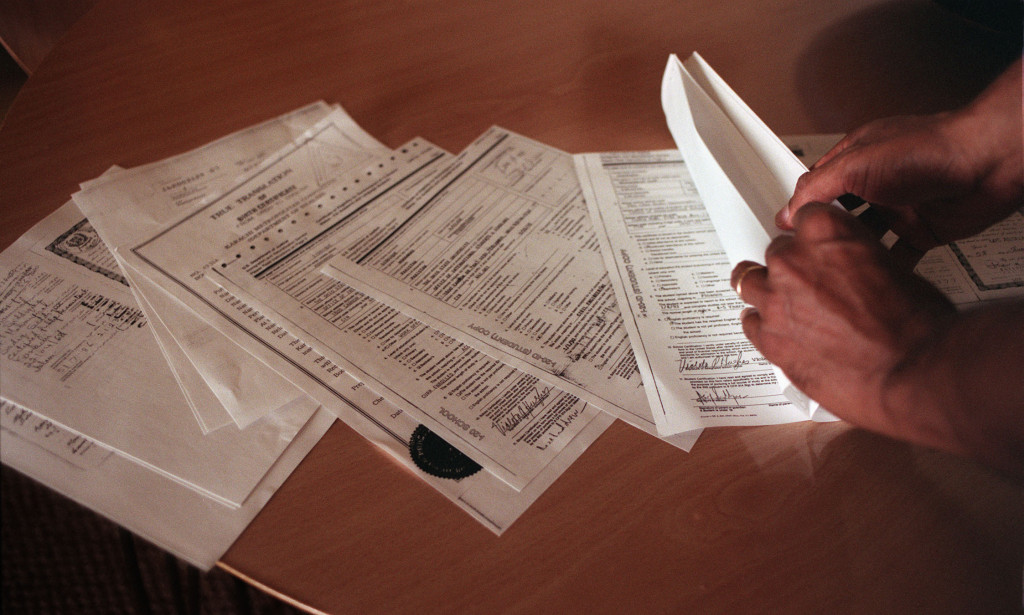A Chinese woman who first came to the U.S. on a student visa was indicted this week for an alleged visa fraud scheme that allowed more than 2,500 Chinese nationals — including a purported spy for the Chinese government — to improperly apply to extend their stays in the U.S.
Federal authorities allege Weiyun “Kelly” Huang, 30, brought in about $2 million through a scam involving H-1B visas and student work permits in which she used a Mountain View address to provide fake documents claiming foreign citizens were employed by her companies, so they could stay in the U.S. Her credit card records showed “significant” spending at luxury retailers including Prada, Louis Vuitton and Chanel, according to the federal criminal complaint against her.
![]()
Huang, a Beijing resident who first entered the U.S. in 2009 on a student visa, in 2014 was granted a spousal visa allowing her to live in the country with her husband, who was on a work visa, according to a court filing by federal prosecutors. On her visa application, she listed her employer as a company called “Findream.” It was that company, with an address on El Camino Real in Mountain View, that was central to the visa scam, authorities alleged in court filings.
Huang used a website, chineselookingforjob.com, and the Chinese internet platform WeChat, to solicit buyers for documents falsely stating that Chinese citizens were employed at Findream and “Sinocontech,” federal authorities alleged in court filings. Her alleged crimes took place between May 2016 and March of this year, authorities said in a court filing.
About 2,025 Chinese nationals on F-1 student visas paid Huang for fake work records from Findream, so they could extend their stay in the U.S. for up to three years through participation in the Optional Practical Training program that gives eligible students the right to work and remain in the country after college, the federal grand jury indictment alleged. Another 660 Chinese citizens paid her for false documents asserting they worked for Sinocontech, the indictment filed Thursday in U.S. District Court in Chicago alleged.
Huang and Findream — which she advertised as a tech startup — also applied for eight H-1B skilled-worker visas, falsely claiming Chinese nationals worked for the company, the indictment alleged.
An FBI agent who investigated Huang and Findream said in the complaint that the firm’s “Our Team” section on its website used stock photos to represent the company’s leadership.
One of Huang’s clients was a Chinese man named Ji Chaoqun, who had received a master’s degree in electrical engineering in 2015 from an unspecified U.S. university, the complaint alleged. Chaoqun paid Huang $900 for fake Findream employment documents he used for his OPT application, the complaint alleged. He filed the application in late 2015, seeking federal approval to remain in the U.S. until February of this year, the complaint alleged.
Chaoqun was arrested in September and charged with being a spy for the Chinese government, the complaint alleged.
In a post-arrest interview, Chaoqun “acknowledged that he paid Findream $900, that he never actually worked for Findream, that he was never paid by Findream, and that he used the company to falsely verify his employment on the OPT form in order to fraudulently extend his stay in the United States,” according to the complaint.
In the five years leading up to last June, Huang racked up credit card bills of more than $715,000, with “significant expenditures” at Neiman Marcus, Louis Vuitton, Hermès, Chanel and Prada, the complaint alleged. Bank records show Huang had little in the way of business expenses, the complaint alleged.
Huang was arrested in March and remains in custody, the U.S. Department of Justice said. Charged with one count of conspiracy to commit visa fraud and five counts of visa fraud, she faces a possible maximum prison sentence of 10 years for each count of visa fraud and five years on the conspiracy charge. Her arraignment in federal court in Chicago has not yet been scheduled, the Department of Justice said Friday.










